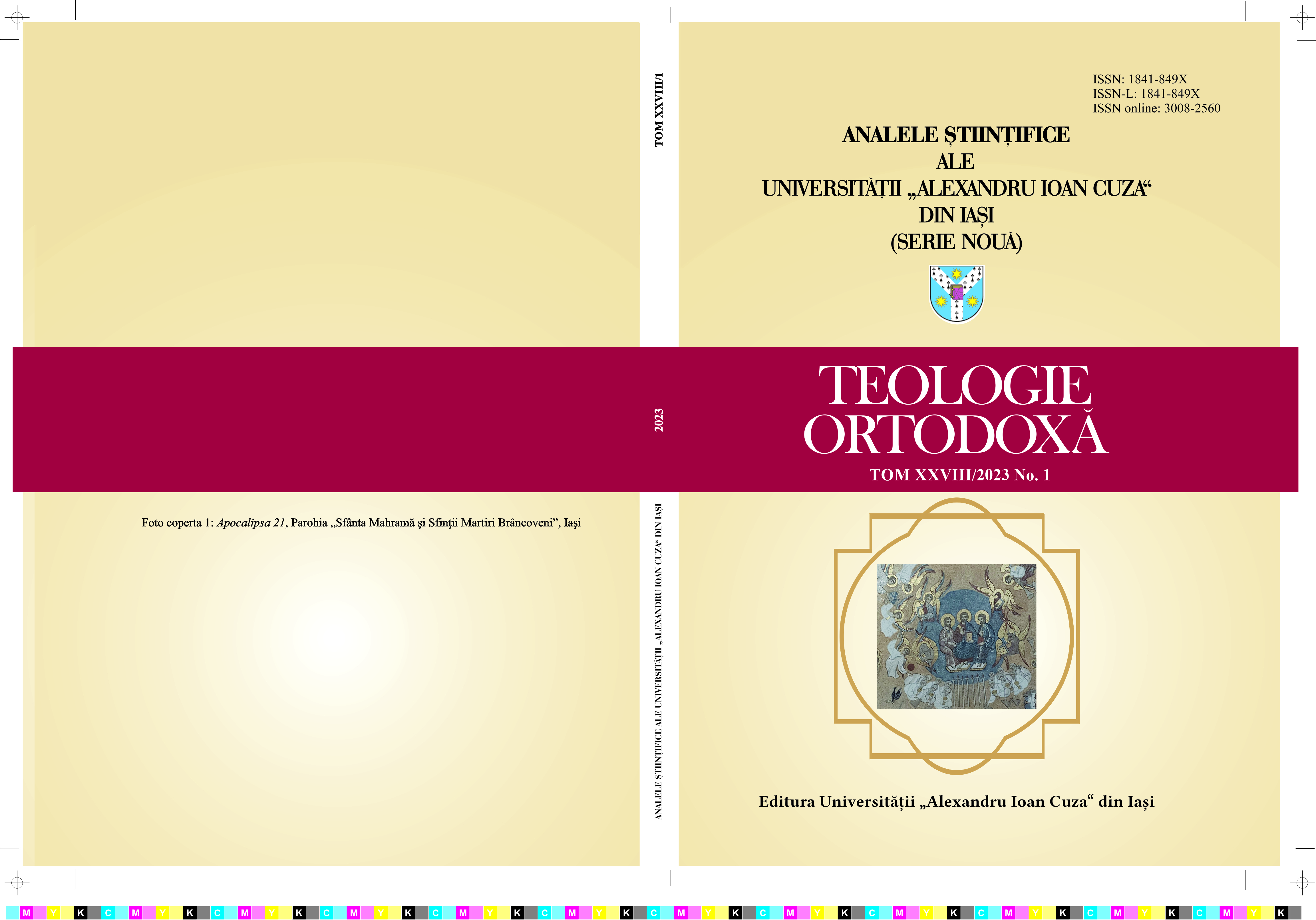Eirini ARTEMI - Can a christian agree with the “modern values” of modernity about abortion and homosexuality
Eirini ARTEMI*
Post-Docs, PhD and MA of theology Hellenic Open University, Thessaloniki, Greece
Abstract:
Today, many people insist that their body belongs to them and they are free to use it as they want. Some argue that homosexuality and abortion are morally reprehensible and other try to embody in a law their moral or immoral convictions. Christianity refuses sodomy and abortion. God forbids the killing of innocent human beings because we are made in his image. Moreover, according to the doctrine of the Orthodox Church, fetus is a perfect human being since its conception. As for homosexuality, God created Adam and Eve, not Adam and Steve, or Eve and Mary. Of course, a very small percentage of homosexuals indicate a genetic basis for their homoerotic sexual orientation. Is homosexuality accepted by Christianity in this case? What do the Church Fathers believe about that? People who support abortions argue that it is up to the woman to decide whether it is right for her to have an abortion because it is her body. Some Christians believe that a woman has a right to a safe abortion, and that it shows compassion if the law allows this. Here is the mistake, our body does not belong to us, it is a creature of God and we should pray for the miracle in any case. We are the directors of our body, not the masters. Roman Catholics and Orthodox Christian believe that abortion is morally wrong because of their belief that human life begins at conception. They may make an exception if an abortion is essential in order to save the life of the mother (the 'principle of double effect'), assuming all efforts have been made to save the fetus. So the sin of willfully aborting a child, except in those very rare situations where it may be necessary to save the life of the mother, is a sinful act, totally contrary to the will of God. Additionally the homosexuality is condemned in the Bible and by Church Fathers. Is there a common place between traditional and modern values? How can religious people face these new “values”?
Keywords:
sodomy, abortion, homosexuality, Church Fathers, Orthodoxy
Bibliography:
- - Artemi, Eirini. 2022. “Vicious and Good/Virtuous Relationships in the Teachings of the Church Fathers”, post-doc thesis. In: European Scientific Journal (ESJ), 18 (13).1, 1-29 (esp. 20-22). https://doi.org/10.19044/esj.2022.v18n13p1
- Athanasius of Alexandria, Preaching for the evangelism of our Most Holy Mother of God, PG 28, 929D; PG 29, 917Α-940C.
- Augustine of Hippo, Confessions, 3, 8, PL 32, 659-869
- Augustine of Hippo, Epistle 211, 11, PL 33, 958-963
- Basilius of Caesarea, To Amphilochius. About canons, Epistle 217, 62, PG 32, 793-812.
- Cyril of Alexandria, The one is Christ, G.M. de Durand, Cyrille d᾽Alexandrie. Deux dialogues christologiques, SC 97, Paris 1994 (=PG 75, 1253C–1361C).
- Eusebius of Caesarea, The proof of the Gospel, 4, 10, PG 22, 9-795.
- Euthymius Zigavinus, Dogmatic Armor, PG 130, 9-1361.
- Greenberg D.F. and M. H. Bystryn. 1982. “Christian Intolerance of Homosexuality”. In: American Journal of Sociology, vol. 88, no. 3 (Nov.), 515-548 (esp. 524).
- Gregory of Nyssa, Concerning Soul and resurrection, PG 46, 11-165.
- John Chrysostom, Homilies on Romans epistle, PG 60, 392-682.
- John Damascene. 1981. Concerning the idioms of the two natures in one Christ our Lord, and also concerning two wills and actions and one hypostasis, P.B. Kotter, Die Schriften des Johannes von Damaskos, vol. 4 [Patristische Texte und Studien 22. Berlin: De Gruyter]: 173-231, section 3814-15 .
- Libanius, Orations 28.8-11; 39.5-6; 53.6; 61.23.
- Maximus the Confessor, Theory in short text for those who say souls preexist or co-exist in bodies, PG 91, 1031-1418.

